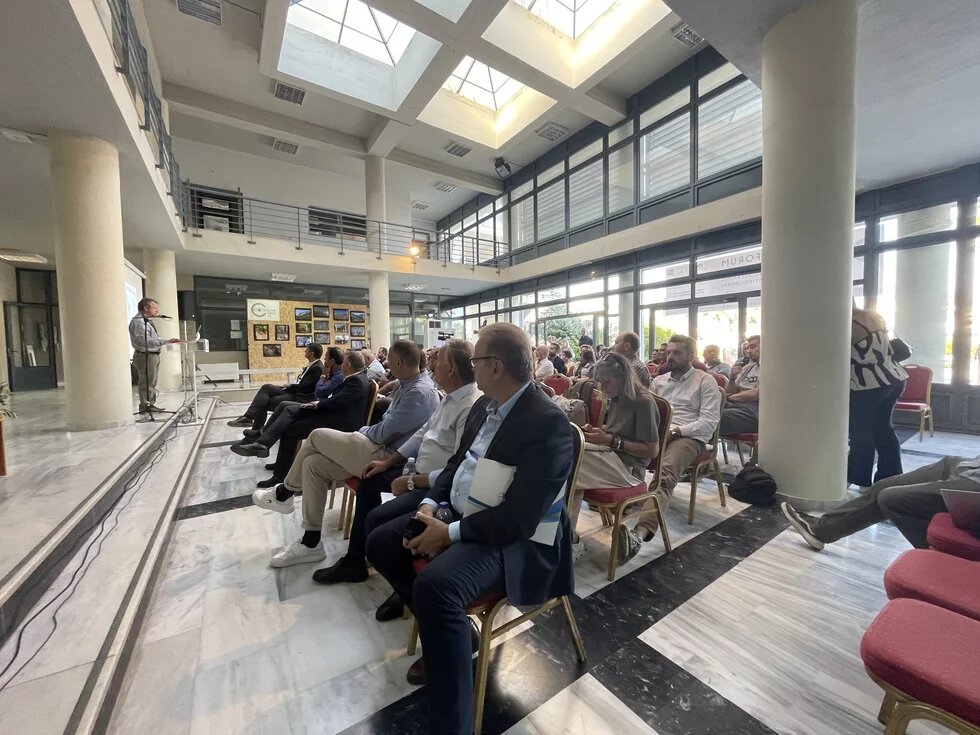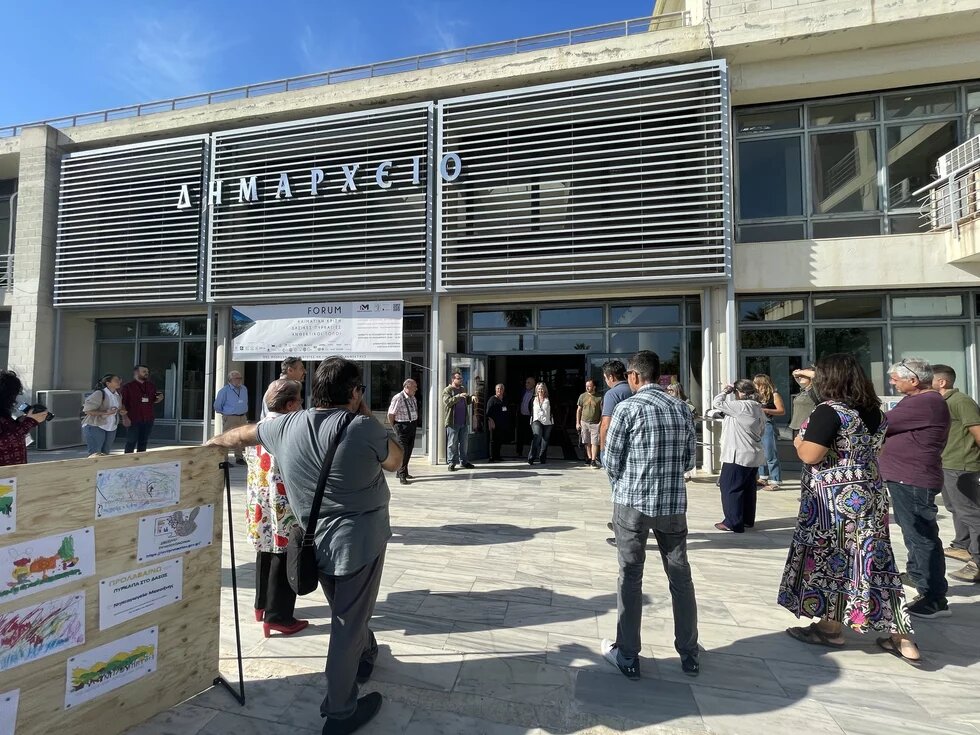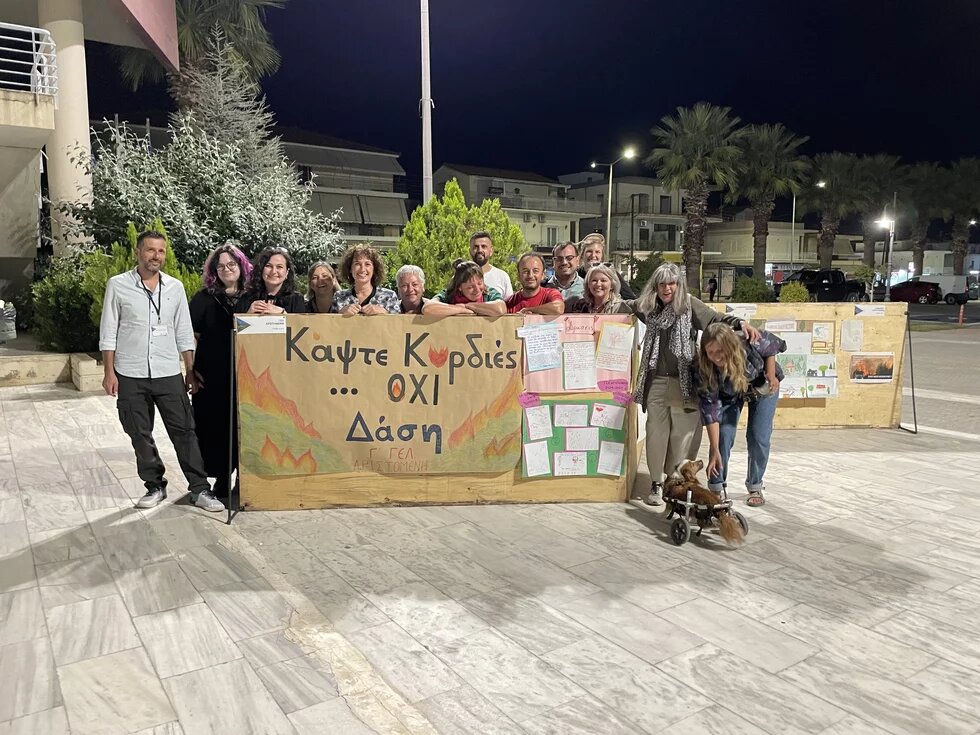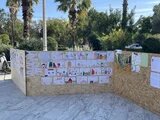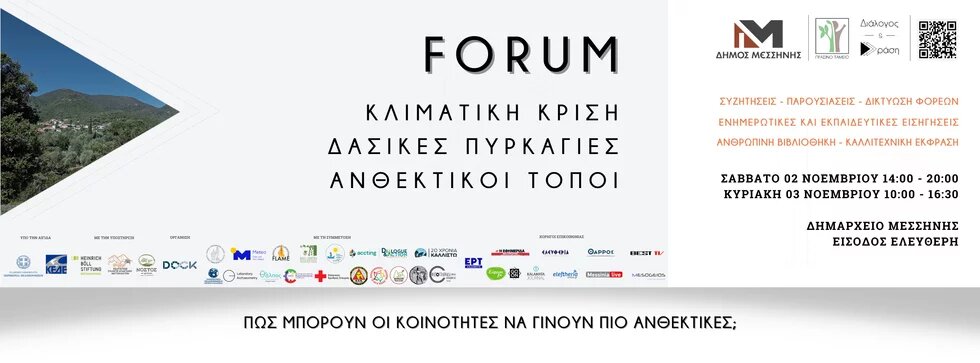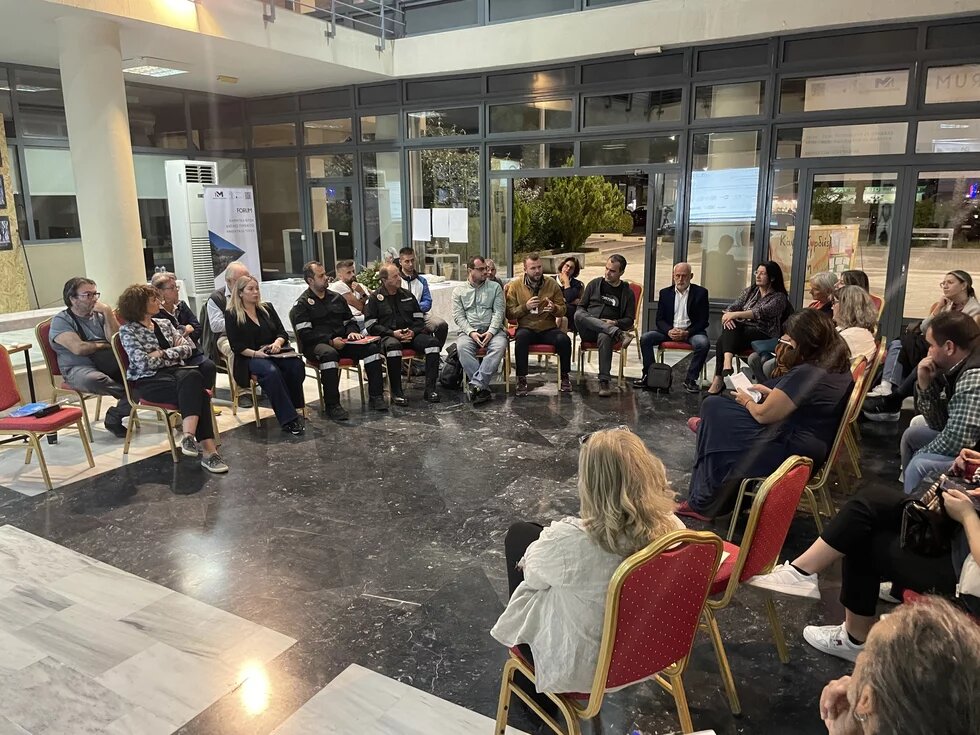
The two-day forum “Dialogue & Action: Climate Crisis, Forest Fires & Resilient Places” paved the way for connecting institutions and local communities, achieving at this stage its goal of bringing together stakeholders, experts, local communities, and citizens in the context of the effort that needs to be made individually and collectively to address the challenges of the climate crisis and forest fires. Throughout the forum, emphasis was placed on resilience and sustainable development, with all participants proposing and discussing, within a constructive dialogue that highlighted innovative and sustainable solutions for the future.
The forum took place at the Messini Town Hall on October 2-3, 2024. It was organized by the Municipality of Messini in collaboration with the Dock - Cooperative Space for Social Solidarity Economy and local stakeholders. The event was supported by the Heinrich Böll Foundation – Thessaloniki Office, the Cultural Association of Manganiakites Worldwide, and Nostos Social Cooperative Enterprise, while it was funded by the Green Fund’s “Financial Support for Outreach Actions 2024” program.

Day 1: current situation, innovative programs, cultural heritage, mental health, civil society
On the first day of the forum, representatives of participating stakeholders presented the current situation in the Messinia region, along with their thoughts and plans for the future. Innovative programs focused on enhancing the resilience of communities against wildfires were showcased, while discussions also covered the impact of wildfires on cultural heritage and mental health. One of the highlights of the day was a session where civil society met with stakeholders, and unfolded thoughts, ideas and projects worth recognizing. More specifically:
- The first panel on “Climate crisis and forest fires: the situation in Messinia”, highlighted issues such as the increasing frequency and impact of wildfires, as well as the need for preparedness, data collection, and mapping, all of which are essential for a comprehensive fire management strategy. Other key concerns included staff shortages, the maintenance of water intake points, and even the importance of livestock farming in wildfire prevention.
- Innovative projects implemented in Messinia, were also presented, such as ResAlliance, which aims to strengthen the resilience of agriculture and forestry in the Mediterranean, and Fire-Res, a project examining the link between climate change and the increase in forest fires in Greece.
- A particularly insightful discussion focused on the often-overlooked consequences of forest fires on the cultural heritage of places and the mental health of affected people. Experts mentioned the risks posed to monuments and archaeological sites from fires while psychologists addressed the long-term psychological effects on local communities. The loss of property and human lives often cause intense emotional trauma, such as anxiety, anger, and guilt, resulting in the need for psychosocial support for those affected. A special mention was made to Mental Health First Aid, particularly for people who have been recently affected by a crisis.
- During discussions between public sector representatives and Civil Society, collaboration between these two pillars was highlighted as a critical factor for the success of prevention strategies and the effective management of disasters. At the same time, as a response to the climate crisis and natural disasters, a development model that promotes collective governance and local community empowerment was proposed. Specifically, local-level partnerships and the importance in managing climate crisis were discussed, while actions on developing partnerships between actors and strengthening Social and Solidarity Economy were presented with the aim of sustainability and resilience of local economies.
Day 2: exchange of experiences, agricultural sector, fire behavior, circular economy, schools
Following the excellent experience of the first day, with the multitude of projects presented and the proposals and opinions submitted by citizens and representatives of stakeholders, the second day of the forum started and ended with enthusiasm and great participation. Among others, the following sections were included.
- The so-called Human Library, a methodology where individuals transfer their knowledge and experiences with small groups of people, thus avoiding the character of a “lecture”, and contributing to the interaction with the audience. In this case, a number of people testified to their experiences from fires and settlements’ evacuation. Participants exchanged experiences and raised questions, emphasizing the need for education, cooperation, and local preparedness to effectively respond to wildfires.
- The presentation of challenges faced by the agricultural sector was also significant. Particular reference was made to agroecology and the importance of resilience in agricultural systems, as well as the importance of sustainability and biodiversity for the effective management of agricultural land.
- Another thing that was pointed out was the need to analyze wildfire behavior. Tools and strategies for adapting to climate change were presented while emphasizing the importance of data collection for better prediction and management of catastrophic events.
- Emphasis was placed on the value of the circular economy. Recycling and the utilization of biomass from agricultural and forestry residues were showcased as sustainable solutions for waste management and energy production, while the significance of local production and consumption for the strengthening of social cohesion and local economy was emphasized.
- Special emphasis was given on the role of schools, as children actively participated with creative projects and activities through the “Dialogue and Action Against Wildfires” program, underlining the need for awareness and action at local level. The event concluded with the awarding of volunteer groups and the 14 participating schools. Thus, the forum ended on an optimistic note, pointing out the crucial role of community and collective action in developing resilient and sustainable solutions to climate crisis and natural disasters.
In conclusion, the forum pointed out the importance of further education and public awareness on wildfire-related issues, while emphasizing the need for planning that considers the specific characteristics of each region. Lastly, it highlighted the necessity for greater collaboration between stakeholders and local communities, laying the foundation for future partnerships to more effectively address the challenges posed by climate change.
